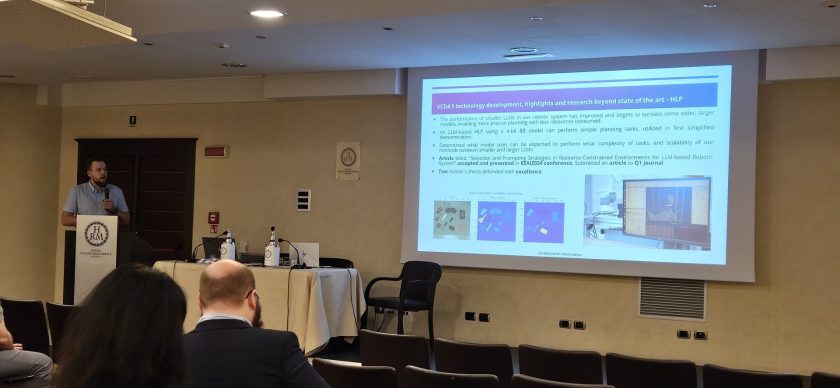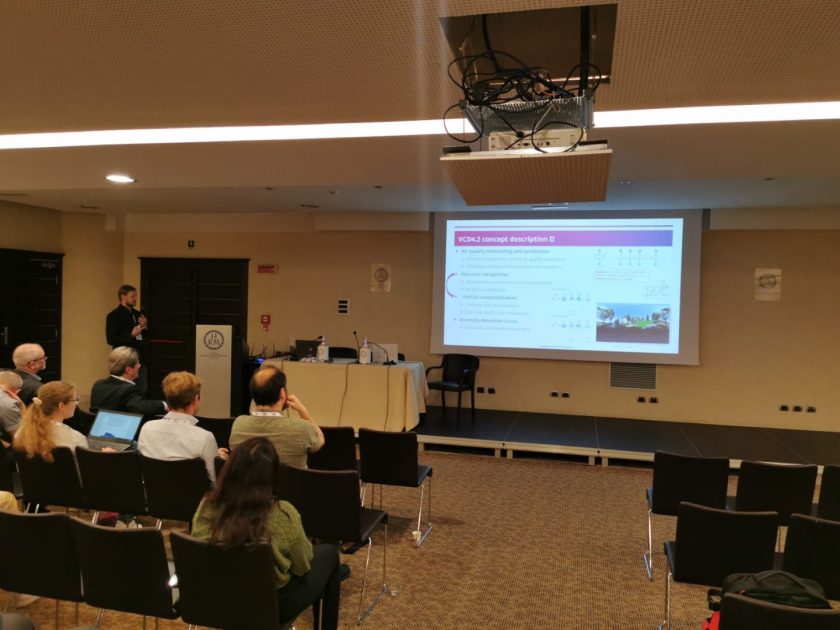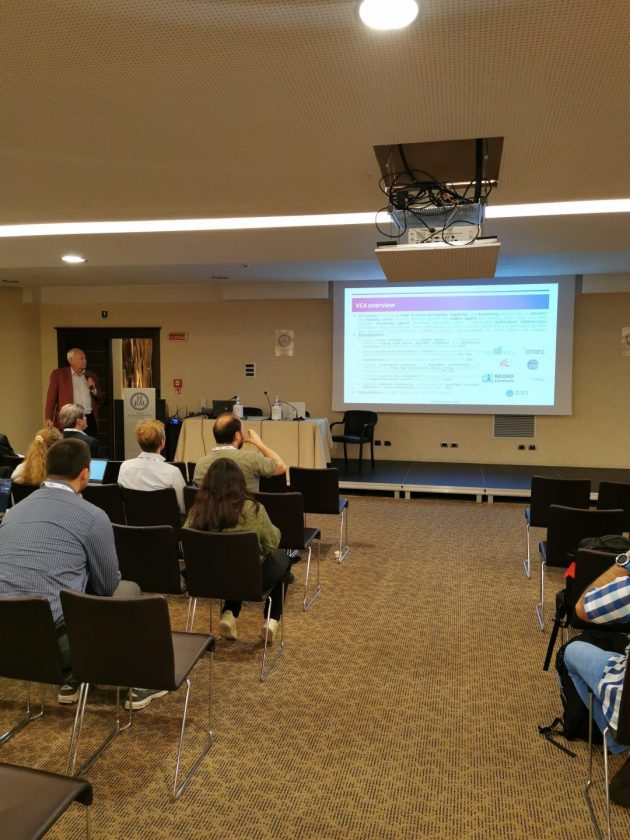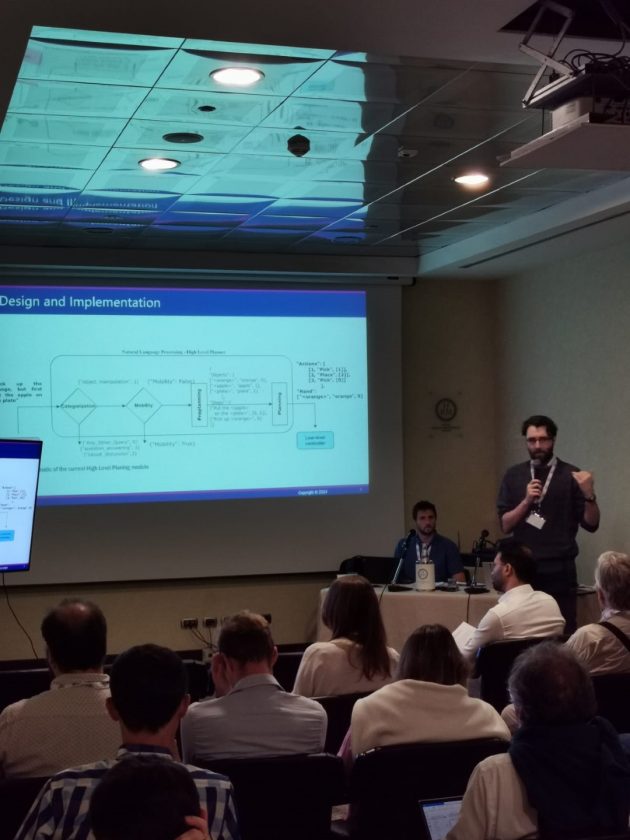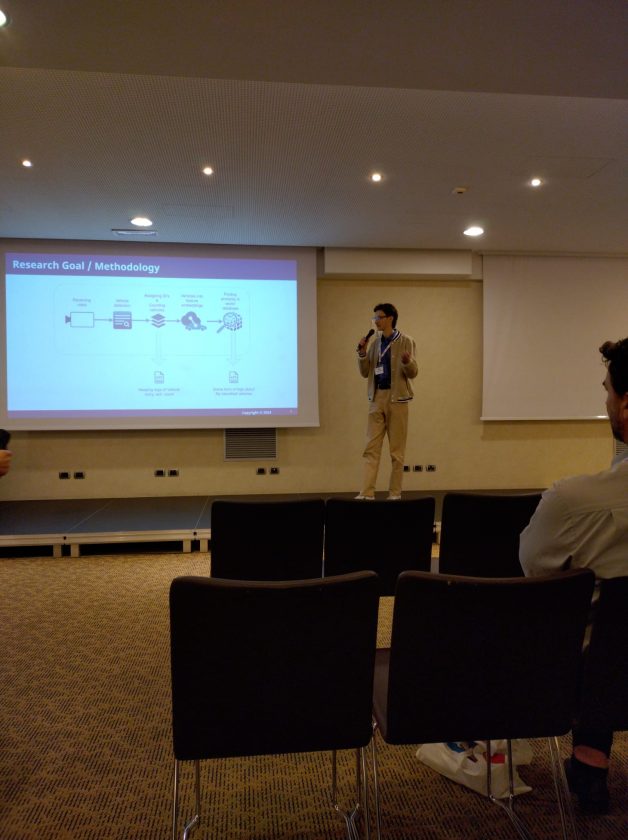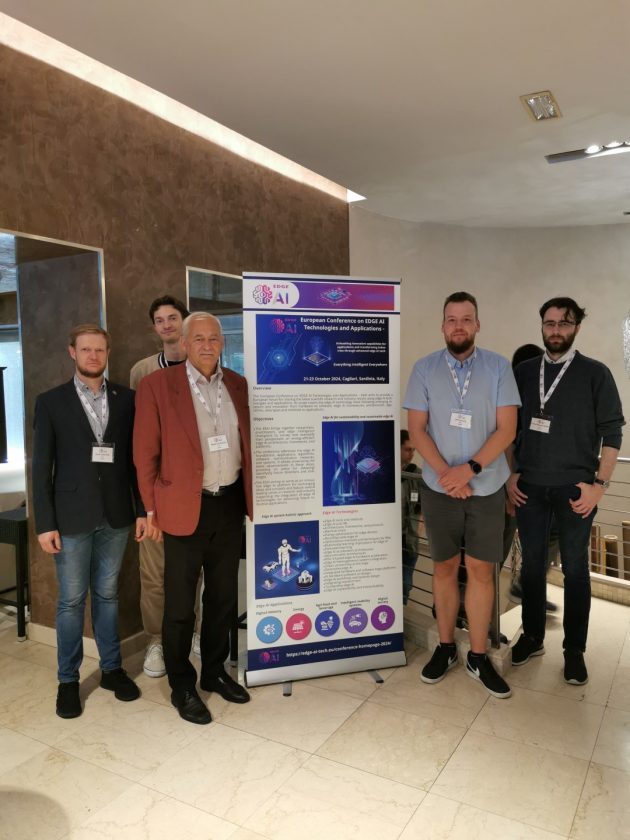
Senior researcher and director Modris Greitāns, head of the Cyber-Physical Systems Laboratory and senior researcher Jānis Judvaitis, as well as senior researcher at the Robotics and Perception Laboratory Jānis Ārents, scientific assistant Toms E. Zinārs, and programming technician Tomass Zutis, are attending the EEAI – “European Conference on EDGE AI Technologies and Applications” conference On the first day of the conference, T. Zutis presents a paper titled “Multi-Step Object Re-identification on Edge Devices: A Pipeline for Vehicle Re-Identification,” discussing models, vector databases, and global settings that could aid in machine re-identification in the context of peripheral artificial intelligence. On the third day, T. E. Zinārs presents a paper titled “Model Selection and Prompting Strategies in Resource-Constrained Environments for a LLM-based Robotic System,” addressing the challenges of developing a small-scale LLM-based planning system. M. Greitāns serves as co-chair for one of the conference sessions, “Session D03: Sustainable Edge AI Technologies and Lifecycle Development,” introducing the session and the presenters.
The presentations at the EEAI conference delve into optimizing software and technical solutions for Edge devices, parallel development of hardware and software, and sustainability in artificial intelligence applications. These discussions highlight areas gaining increasing significance, such as neuromorphic architectures, federated management of Edge devices, and AI solutions in industrial processes.
Following the conference, two additional events continue at the same location:
1. The Horizon Europe project EdgeAI General Assembly, where M. Greitāns, J. Ārents, and J. Judvaitis engage in discussions with other partners about effective collaboration for the project’s next steps. They also present value chain VC4 s“Mobility,” lead by EDI, showcasing demonstrators VCD4.1 and VCD4.2. The General Assembly also discusses the project’s progress and future activities.
2. The INSIDE Association thematic workshop, which features discussions among representatives from interested institutions on recommended future research topics for the Chips-JU calls related to the development of electronic components and systems in software and systems engineering. The discussions crystallize key challenges concerning electronic components and systems for healthcare, engineering automation, the edge-to-cloud continuum, mobility, and safety and security in systems of systems.
